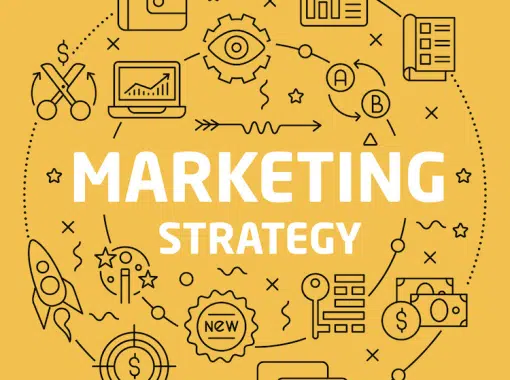
Real estate agents know that being visible and standing out is extremely important. After all, the world of real estate is competitive– there is guaranteed to be competition in your local neighborhoods.
Thankfully, you can stand out and grow your real estate business by effectively marketing what you do. Marketing not only helps increase profits and foster future growth but also builds your brand and attracts prospective clients.
This comprehensive guide will explore the best practices and channels for real estate marketing, tailored specifically for real estate agents eager to enhance their visibility and sales.
- Why is marketing important in real estate?
- Key strategies for good marketing in real estate
- The best marketing channels for real estate agents
- How to market and advertise a specific property
- Tracking and attributing marketing efforts
Why is good real estate marketing important?
If clients are going to hire you, they need to know who you are. Not only that, but they need to be confident that you’re the right real estate agent for the job. After all, they’re trusting you with a very large transaction. Either they’re selling a home and hoping to get top dollar with minimal stress, or they’re buying a home and want to make sure they’re getting into an ideal property.
Effective marketing strategies can help you gain more trust, which ultimately will help you draw a higher volume of leads, convert more prospects into clients, and, consequently, increase transactions and profits.
Strategic marketing not only boosts immediate sales but also establishes a foundation for future growth. Building a recognizable brand and cultivating a robust online presence can lead to sustained success in the increasingly competitive real estate landscape.
Key strategies for great real estate marketing
No matter which marketing channels you use, you need a solid foundation. You need to constantly adjust your strategy based on trends– both in marketing and in real estate. You also need a recognizable brand image, an up-to-date website, and a systemized approach to gaining reviews and referrals.
Stay up to date and abreast of market trends – Clients look to you as their real estate expert, so understanding real estate market dynamics is crucial. Regularly analyzing market trends helps tailor your marketing strategies to current conditions, making your efforts more relevant and impactful.
Be consistent in branding – Branding establishes trust and makes you memorable. Maintain a coherent brand image across all platforms and interactions. Consistent branding increases recognition and trust, making potential clients feel more comfortable choosing your services over others.
Create a solid website and keep it up to date – Your website acts as the virtual front door to your services. Keep it up-to-date, mobile-friendly, and loaded with useful content, including listings, articles about real estate trends, buying/selling tips, and client testimonials.
Continually ask for reviews and referrals – Encourage satisfied clients to leave positive reviews online and refer friends and family. Reviews and word-of-mouth are incredibly powerful in attracting new business.
Find a New Business Number Now
The 10 best marketing channels for real estate agents
In today’s competitive real estate market, effective marketing is a necessity. Real estate agents need to leverage a variety of channels to stand out, attract clients, and close deals. Because real estate is a local business, agents need a multi-pronged approach so that they’re visible in both the digital and physical world. Here are some popular marketing channels that real estate professionals can use to boost their visibility.
1. Your online presence
People need to find you. They also need to see that you’re a legitimate business. That means establishing an online presence and staking the claim of your business on the internet. This includes creating a website, Facebook business page, Yelp page, and Google business page. Once your online presence is established, you’ll be better positioned to gain the most ROI from your marketing efforts.
2. Social media
Social media platforms like Instagram, TikTok, and YouTube offer powerful tools for real estate agents to showcase their expertise and build a brand. These platforms are ideal for both organic posts and paid advertisements.
- Instagram is perfect for sharing high-quality images of listings and short videos with tips, making it a favorite for real estate agents.
- TikTok allows agents to create engaging, bite-sized videos that can go viral, highlighting tours of beautiful properties or sharing home-buying tips.
- YouTube serves as a platform for longer-form content, including virtual tours and expert advice segments. It is also highly correlated with
The key to success on social media is to build a substantial following and maintain a consistent presence, which can also positively impact your search engine optimization (SEO) efforts, as well.
3. Real estate business texting
Communicating with prospects via SMS or business texting is one of the best ways to establish a relationship and stay top of mind. It’s an extremely convenient way to reach your customer base– the average person spends three hours on their smartphone each day, which means that you’re highly likely to reach your audience.
4. Sponsoring local events
For real estate agents focusing on specific neighborhoods, sponsoring local events in those spots can be a highly effective marketing strategy. If you look around your neighborhood, you might see that agents sponsor holiday parades, 5k fun runs, and other special events. This approach not only boosts your visibility within the community but also establishes your brand as a local supporter, building trust and recognition.
5. Billboards and other high visibility advertisements
Traditional advertising methods like billboards remain potent. Placed in high-traffic areas, billboards can significantly increase brand recognition and help capture local leads who frequently pass through specific routes.
6. Direct mail
Despite all the options for digital marketing, direct mail campaigns are still successful, especially in real estate when you can send to a specific neighborhood. Sending well-designed flyers, postcards, or newsletters can help keep your brand top of mind.
This strategy is particularly effective for reaching older demographics who may prefer physical mail over digital ads. Just remember to use a specific phone number and URL for these efforts so you can correctly attribute any leads.
7. Going door to door
While it might seem old-fashioned, door-to-door marketing can be highly personal and effective, especially in tight-knit communities. This direct approach allows agents to meet potential clients face-to-face, making a memorable impression.
8. Search engine optimization (SEO)
SEO is critical for real estate agents aiming to increase their online presence. You want your business to come up when someone searches for the best real estate agents in their city. By optimizing your website and content for search engines, you can attract more organic traffic, which is often more credible and conversion-prone than traffic generated through paid ads.
9. Referrals and word of mouth
Word of mouth remains one of the most reliable marketing strategies. Many agents will tell you that most of their business comes through this channel. Real estate agents should focus on delivering excellent service to foster referrals. Having a systematized approach to encourage satisfied clients to share their positive experiences can lead to a steady stream of business.
10. Email marketing
Email is one of the best ways for real estate agents to stay top of mind. Building an email list gives you a direct line into your prospect’s inboxes. You can promote events, special services, market trends, videos, and any other marketing assets. Plus, your email list is something that you own. Unlike social media, you won’t be vulnerable to algorithm changes that can up-end your efforts.
How to market and advertise a specific property
Marketing a real estate property efficiently requires a blend of technology and traditional methods to capture the interest of potential buyers and make the property stand out. Here are key strategies to effectively showcase a property:
Use cutting-edge technology
3D and Virtual Reality (VR) Tours: Leverage 3D modeling and VR to offer an immersive experience. These tools allow potential buyers to explore the property from anywhere in the world, providing a realistic sense of the space and layout without requiring physical presence. This can be especially appealing to out-of-town buyers or those who prefer preliminary virtual viewings.
Augmented Reality (AR) Features: Incorporate AR to help buyers visualize changes and renovations they might consider, such as different wall colors or furniture layouts. This interactive technology can turn a viewing into an engaging, customizable experience.
Stage the property
Professional Staging: Hire a staging expert to furnish and decorate the home, enhancing its appeal. Well-staged homes often sell faster and for higher prices because they help buyers envision their life in the space. Focus on neutral decor that appeals to a broad audience and highlights the property’s best features.
Virtual Staging: For properties that are not physically staged, virtual staging is a cost-effective alternative. It involves digitally placing furniture and decor into high-quality photos of the property, helping online listings pop without the physical furnishings.
Invest in high-quality imagery
Professional Photography: Hire a professional photographer who specializes in real estate photography. Quality photos are essential for making a strong first impression. Ensure that the photographer uses natural lighting and captures multiple angles to fully showcase the property’s appeal.
Drone Photography: Use drone photography to provide aerial views of the property and its surroundings, offering prospects a comprehensive look at the entire area, which is particularly useful for properties with large lots or stunning landscapes.
Provide detailed site information
Site Plans and Blueprints: Include detailed site plans and blueprints in your listings. These documents help potential buyers understand the precise layout and potential of the property, including room sizes, boundary dimensions, and orientation.
Interactive Floor Plans: Offer interactive floor plans that allow viewers to navigate through the property virtually. These can be integrated with 3D tours for an enhanced viewing experience.
Tracking and attributing marketing efforts: How do you know what is working?
Understanding which marketing strategies are most effective is crucial for optimizing your efforts and budget.
Make sure your efforts are trackable – Implement tracking methods such as UTM codes, dedicated landing pages, and CRM systems to trace leads back to their sources. Call tracking is also a great way to correctly attribute leads– by dynamically changing phone numbers on specific landing pages and across campaigns, you know exactly where people are coming from. This data allows you to refine your marketing strategies and allocate resources more effectively.
Regularly analyze the data and refine your efforts – No matter what channels you choose, it’s not enough to simply track. It’s also essential to analyze your data so that you can refine your efforts. It’s only when you know what is working that you can double down to get the most bang for your buck as you market your real estate services.
Market your real estate business to become the go-to in your market
The real estate market is competitive. Establishing a strong and distinctive brand through effective marketing is not just beneficial—it’s essential. This guide has illustrated the significant role that strategic marketing plays in not only boosting immediate sales but also in building a sustainable business. By leveraging a mix of traditional and digital marketing channels—from social media to direct mail—agents can improve their visibility and attract more clients.












